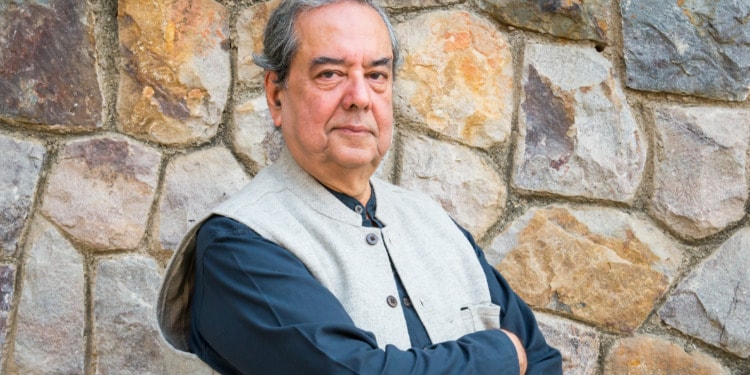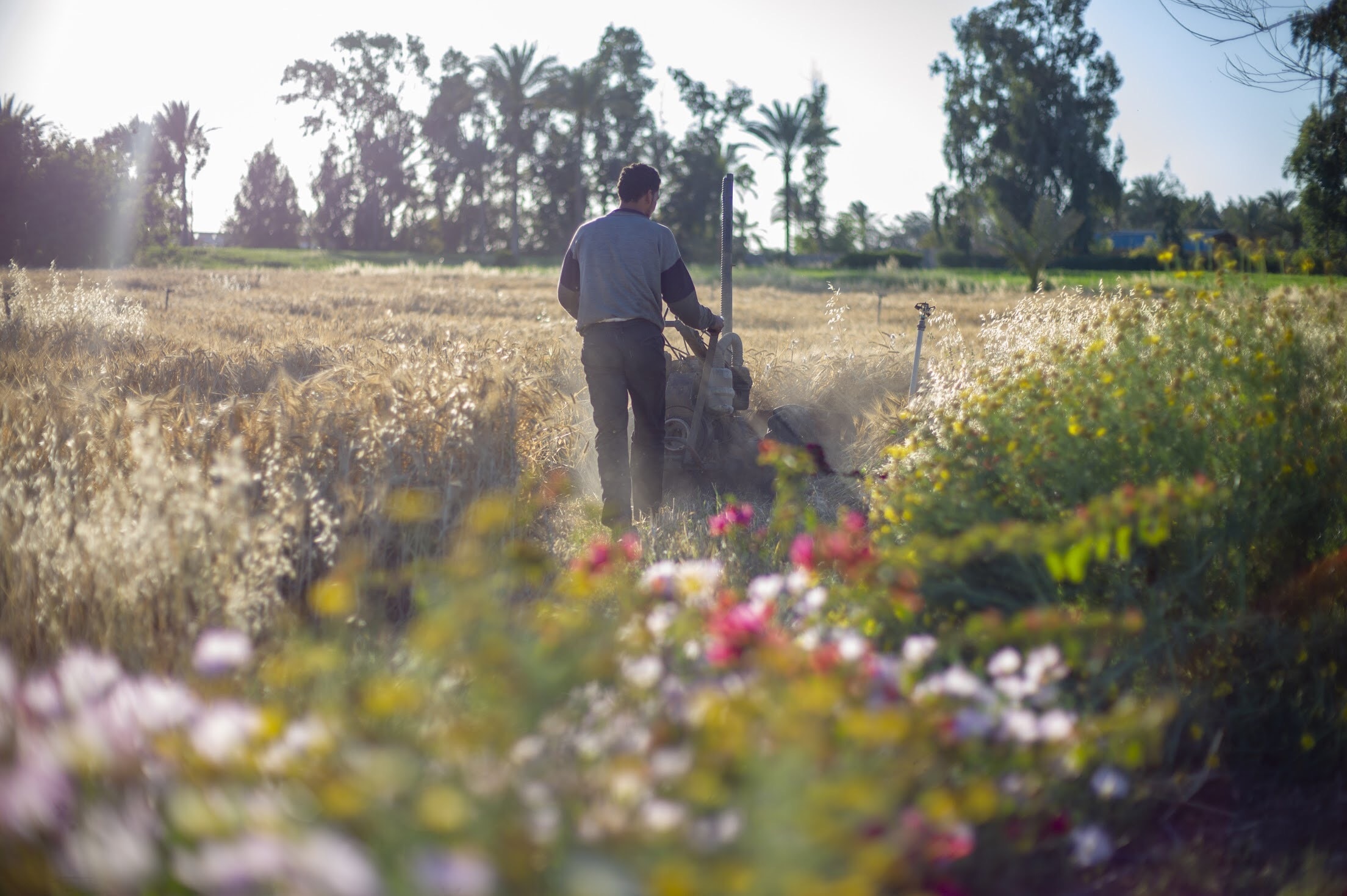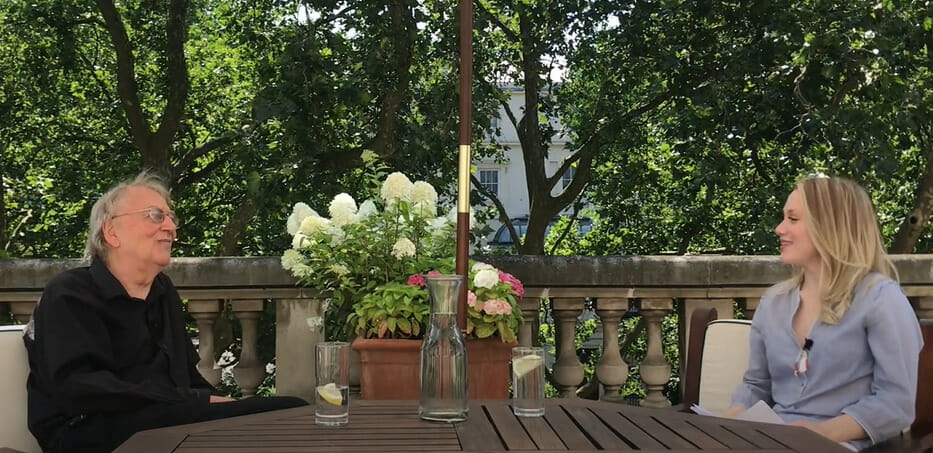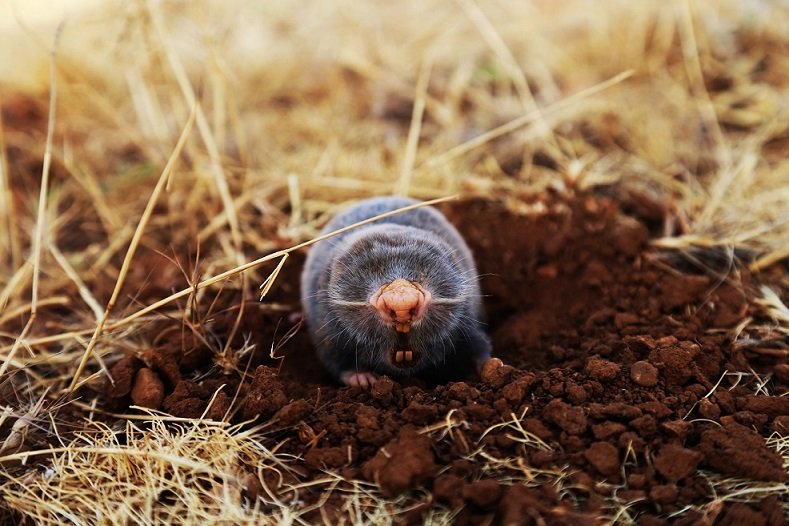This is the 10th article in the series “The Good Council,” based on the World Future Council’s podcast with the same name. The series gives a behind-the-scenes look at the organization’s trajectory, from revolutionary ideas to reality, and offers insights into its current agenda. The Good Council podcast provides inspiration, laughter, and food for thought through intergenerational dialogue between its founders, senior Councillors, and young entrepreneurs and activists from around the globe.
What are best practices and sustainable solutions for our common future? How can we leave the planet in better shape for future generations? These are the questions the World Future Council has set out to answer.
The World Future Council aims to give our children and grandchildren a healthy planet with just and peaceful societies – now and in the future. To achieve this, the foundation identifies, develops, highlights, and spreads future-just solutions for current challenges humanity is facing and awards them with the unique Future Policy Award. The Council consists of fifty eminent global changemakers from civil society, science, politics and business. They meet annually at the World Future Forum to discuss the most urgent challenges and policy solutions to them.
In the latest The Good Council podcast, UN Framework Convention on Climate Change (UNFCC) Youth Constituency Chair Marie-Claire Grafare spoke to Dr Ashok Khosla, Councillor of the World Future Council and one of the world’s leading experts on the environment and sustainable development.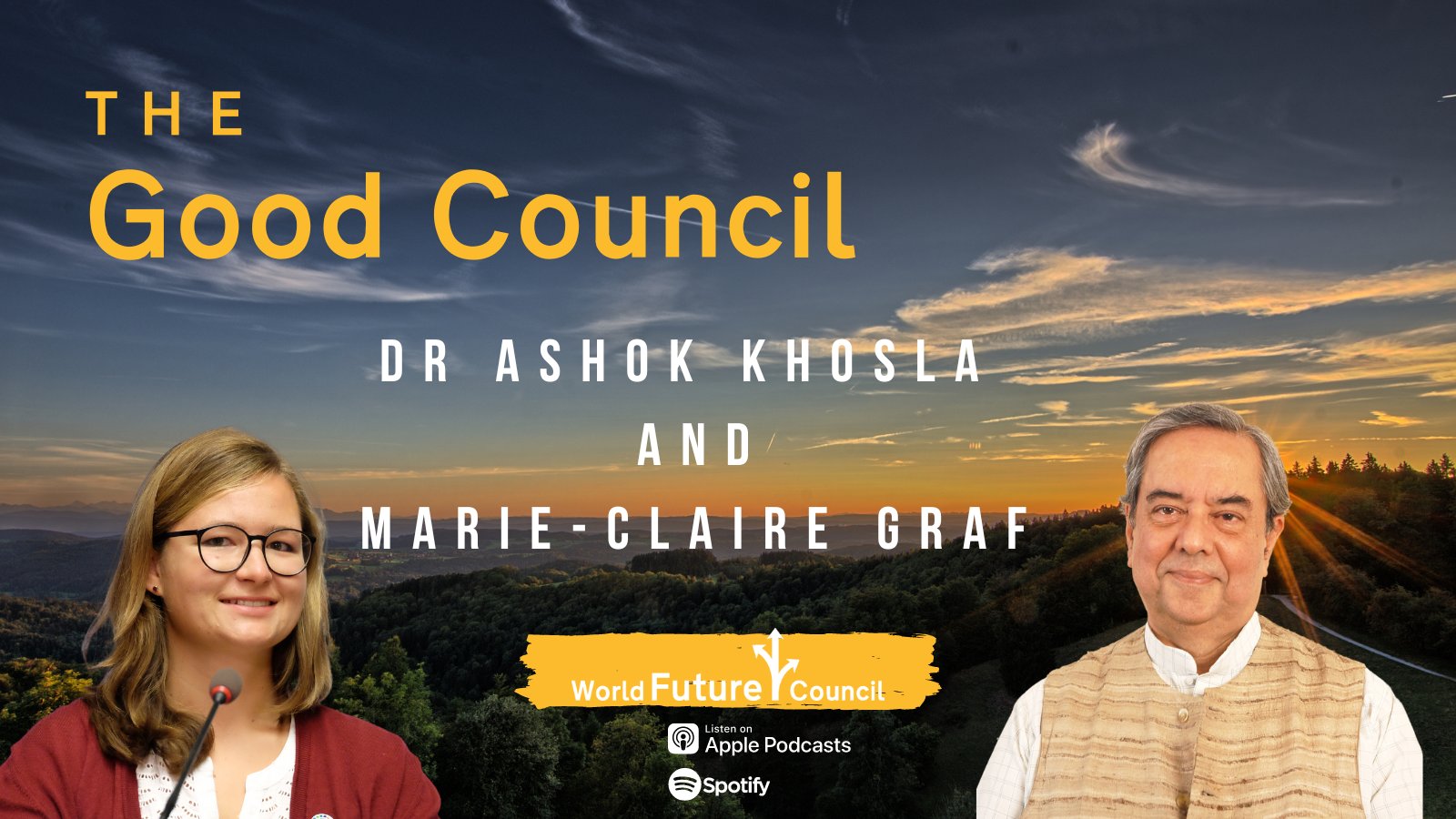
Currently, Mr. Khosla is Chairman of Development Alternatives. He also serves as chair of the Hydropower Sustainability Council. Earlier, he was president of International Union for Conservation of Nature (IUCN) and of the Club of Rome, and co-chair of the International Resource Panel.
Dr Khosla was the founding director of the Indian government’s Office of Environmental Planning and Co-Ordination, the first such agency in a developing country. He left his subsequent job at the United Nations Environment Programme (UNEP) to found New Delhi-based Development Alternatives, the world’s first social enterprise dedicated to sustainable development. DA designs, implements and promotes technologies, institutions and policies that spread commercially viable, environmental friendly outcomes.
He has been a board member of numerous global environmental organisations, including the International Institute for Sustainable Development (IISD) and the Stockholm Environment Institute and served as an adviser to, among others, the World Bank, the United Nations Development Programme (UNDP) and the Indian government. Mr. Khosla was made an OBE by the UK Government and awarded the 2002 Sasakawa Environment Prize and WWF’s Duke of Edinburgh Medal in 2011.
Here is what Marie-Claire Graf and Dr Ashok Khosla spoke about.
Marie-Claire Graf: You are the Chairman of Development Alternatives, which promotes environmentally friendly technologies. What experience did you make during the founding process of Development Alternatives?
Ashok Khosla: At UNEP, in the 1970s, I had a very special job to build up a global environmental information network, which made me into a kind of environmental ambassador visiting capitals all over the world, talking to ministers and high-level officials about how important environment was and how they needed to set up their environment agencies. And it was a wonderful experience, but at the end of those five years, I realized that there were more and more poor people in my country, and there were fewer and fewer trees. So, I packed up my bags and came home and started “Developing Alternatives.”
For me, the two great issues for humankind that were calling for drastic, urgent attention and transformation were ones that neither governments, nor agencies like the UN, nor businesses, were going to deal with in the manner needed. So, I tried to design a new kind of institution, which I called a social enterprise which could combine social objectives with market-based strategies. This seemed to me to be a necessary condition to achieve the sustainable development impacts needed at a scale and speed that would be meaningful.
How would you say the concept of sustainability and Sustainable Development differs? Is there a different focus?
Ashok Khosla: The fundamental principles are people, planet and prosperity. That’s the same goal desired by everyone, everywhere.
Now, in Europe, they talk about a circular economy, which is mostly about reducing resource consumption through such actions as reducing, recycling, reusing, etc., wastes and secondary materials. In richer societies, the specific issues that are derived from the overall concept of sustainability have to do with production systems and consumption patterns. In the Global South, the issues are much more about poverty, about creating jobs that are decent, that have a less negative impact on the environment, and improving the material standard of living.
So, while the overall goals of a sustainable future are the same, there are differences in what comes first. But it’s obviously become apparent that even in the poorest country in the world, plastic wastes are drowning everyone, rich and poor. The lack of decent, nutritious food is destroying the health and wellbeing of our future generations, as are chemicals in the environment, loss of biodiversity and climate change. No one is immune to these threats.
Ultimately, there is a need for convergence among all societies. They’re all related, people and planet are two sides of the same coin – they both need a different kind of prosperity that we have today.
What are the difficulties you have been facing in that process?
Ashok Khosla: When we started “Developing Alternatives,” it was as a rebellion against the present system, in which big business was not interested in eradicating poverty. Governments talked about removing poverty at the time of elections, but weren’t really interested in dealing with it, because they were controlled by the big businesses. And civil society, Non-Governmental Organisations, were directly concerned with these issues, but they couldn’t address the problems at the scale needed. So, I felt that there was a need to bring together the motivational methods of business with the social objectives of government.
A “social enterprise” approach, combining the respective strengths of business, government and civil society, seemed to me to be the way forward, enabling us to bring innovation and multiplication to help solve the worldwide problems of poverty.
What are the bigger challenges you’re facing in the Indo-Pacific region specifically?
Ashok Khosla: What is worrying me the most is that in the last decade, in most countries of the world, including in mine, civil society is under tremendous threat. They are being heavily squeezed — financially, institutionally, substantively. There seems to be some kind of a political virus today, spreading through virtually every country that I can think of.
More than two-thirds of the world’s people live in societies that can only be called autocratic or well on the way to becoming autocratic. One manifestation of such systems is that they cannot countenance criticism, however well-intentioned, and easily become afraid of independent thinking, individual voices and non-conventional action. They find ways, sometimes draconian, always counterproductive, to silence civil society and keep it at bay.
Related Articles: On Activism and the Environment: Interview With Thais Corral | Rewarding Policies That Improve Lives
The answer to your basic question is, my biggest worry is not whether we have a problem with nuclear power, or with big dams, or with lack of water, or with lithium scarcity or whatever — that’s not the problem. The problem is that we don’t have institutional frameworks that can identify and deal with these problems in the manner and with the priority that a better future demands.
There will always be problems. The question is, can we figure out early enough what they are and how to deal with them?
We have to solve so many challenges. When you look at today’s youth activists and advocates, are there some particular pieces of advice you would like to share?
Ashok Khosla: I think we all have different ways of dealing with the challenges that we face. And many of us, particularly young people, are looking around and and saying, “Why are things so bad?” and “How can we change them?” Bobby Kennedy said, “I think of things that never were and ask, ‘why not?‘” And this means that we need new ideas about how it could be different, and how we, each one of us, can bring that about. That’s why it is so crucial that your generation take charge of designing the future.
All of the work you have been doing and the work you’re still doing brought you to the World Future Council. So, what makes the World Future Council so special to you?
Ashok Khosla: It’s not very difficult for people doing useful things to get me involved in meaningful activities. My parents never taught me how to say no, so I do get into a lot of trouble. And so it has been that I got involved in global initiatives such as IUCN, the Club of Rome and the International Resource Panel – and, of course, the World Future Council which resonated closely with the kind of work I was doing in India.
The World Future Council, for me from day one, was the voice of the voiceless, the voice of the future, the voice of children born or yet unborn, because they don’t have a voice in government, they don’t have a voice in the marketplace, indeed, they don’t have a voice anywhere. And the idea of such an institution was, for me, amazingly important to enable us to ensure that all our decisions need to be taken in the light of their impact for several generations to come.
What makes you happy, what keeps you motivated? What keeps you going to continue the work you’re doing every single day?
Ashok Khosla: That’s a good question. I suppose it’s all about what makes life meaningful and worth living. For me, meaning comes from helping make lives better, learning and growing as a person, discovering new solutions to old, intractable problems – and having fun. So, when I wake up each morning, it comes naturally for me to think, “wow, what an opportunity to do something interesting.”
— —
Every other week the World Future Council sees the Councillors get together with young activists and changemakers from around the globe, who are also part of WFC’s youth forum Youth:Present. New episodes are released every other Monday and can be listened to here.
Editor’s Note: The opinions expressed here by the authors are their own, not those of Impakter.com — In the Featured Photo: Dr Ashok Khosla. Featured Photo Credit: Wikimedia Commons.


